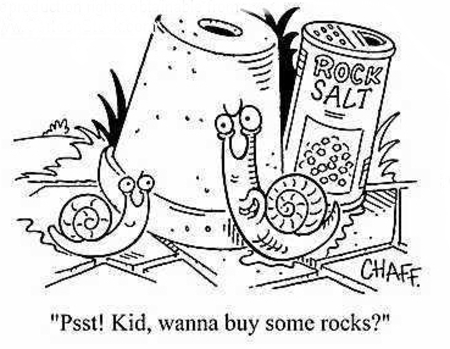Starting a new business for the sake of making quick money to survive from one day to the next is nothing new. Street walkers do it all the time. So do drug dealers.
But this isn’t work. It’s bondage to a life of peril and misery.
This kind of quick money is no way to survive because the point of survival is to grow strong to fight another day.
So, keep your time horizon always before you.
Though you need to make money quick, you also need to have an idea of what you will undertake a moment later, after you get that quick money.
Quick Money For What Again?
Quick money is not what lies behind starting a new business overnight. Don’t make money quick for the sake of cash itself.
Make lots of money quick because you can’t help to receive this money quickly enough as the by-product of executing honest, reliable yet quick money making ideas.
What sort of quick money making ideas?
That question is best answered with a story.
Quick Money Making Peter
He was 17 and the fifth of 7 children. His name was Peter. His dad had been an amiable yet inefficient man, who married the daughter of a former mayor of New York City.
The boy got a mixed bag of education from his parents. From his mom he got a rare blend of sweetness and fire, of efficiency and tenderness.
But from his dad, who had retired from service with the rank of Captain, he got a lack of perseverance, because the father had always been better at forming schemes than at carrying them out.
So when Peter received his father’s consent to leave home for New York City, all that he took with him was this baggage.
He wanted to learn a trade, so he looked to apprentice himself to somebody. He didn’t relish the idea of spending his life brewing beer with his dad.
Peter wandered the city for some days without finding a place he liked or that wanted him. One day, he entered a freight factory and asked for the shop owner.
“Do you have room for an apprentice?” he asked.
“Do you know anything about this business?” the owner replied.
“Um. No”
“Were you brought up to work?”
 That Peter most decidedly had. He had learned to brew beer and work at it with his father.
That Peter most decidedly had. He had learned to brew beer and work at it with his father.
“Is there someone who can vouch for you about your willingness to learn this trade?”
“Well,” Peter said, “My parents have given me my choice of trades.”
“I see,” said the owner. “If I take you, will you stay with me and work out your time?”
Peter promised to do so, and the bargain was struck.
But he was making peanuts, barely getting by, especially after sharing some of his earnings with his family to help them along. Yet, the young man was tenacious. He clung to the novice job for 3 years. He put in his time.
One thing Peter painfully felt during that time no less was his own ignorance.
Although he was energetic, inquisitive, inventive and his mind craved for knowledge like a hungry man craves after food, he was unaccustomed to reading.
He bought books that at first perplexed him more than helped him. He tried to go to school. He paid for a tutor for a while, which helped him with basic math and a bit more. But this only made him more aware of how woefully inadequate his childhood instruction had been.
Nevertheless, Peter worked well and when he turned 20 his boss offered to lend him money. The idea was to use it to start his own business. But Peter turned it down. He wanted no debt. So, instead he went to Long Island to work in cloth.
Peter’s practical ingenuity, through trial and error, helped him design a machine that improved the quality of woven cloth at a time when cloth manufacturing was critical for the U.S., because the country was at war and there were shortages of all kinds.
Of Cloth and Making It Big Before Age 25
Cloth factories had sprung everywhere. Peter’s machine was in demand. In light of this success, he set up a machine shop of his own, starting a new business by making these and other machines for the factories that had come to know his previous work.
He was now an entrepreneur at only 21 years of age.

But the end of the war also ended cloth shortages. His business rapidly declined. He had learned, however, an unforgettable lesson: that starting a new business to make quick money overnight to make ends meet requires more than creativity and tenacity.
Starting a new business requires executing one idea that delivers massive benefit to a specific kind of customer at a time of colossal need.
At 24, Peter married. Starting a new business once more, he converted his machine shop into a cabinet-making workshop. Not content with that, he left it for a grocery store; thus, starting a new business yet again. At the age of 25 Peter, while working at his store, received a visit from an acquaintance.
“I’ve been building a glue factory for my son,” said the visitor. “And I don’t think either he or I can make money. But you could.”
“Where is it? I’ll take a look.”
Peter surveyed the place and liked it. At the time, the best glue came from Russia. American glue sold for one-fourth the price of Russian glue because of its poor quality.
Peter decided he wanted to figure out a way to turn American glue into the best in the world.
Starting a new business was now coming naturally to Peter. The opportunity was before him. He now had the experience. He sold the grocery store and bought the profitless glue factory.
At 7 AM each morning, Peter was the first in line at his own glue factory. He opened it and got the machines going before all the workers showed up.
By midday, he was traveling throughout town calling on customers. For many years, he got home in the evenings to do the books himself and then take care of his wife and 6 children.
This was Peter Cooper throughout his 20’s.
And It Was Glue That Finally Made Him Wealthy
This same poorly instructed, beer-brewing, cloth-making, mom and pop shop owner young man of 25 with a no-profit glue business in tow would be filing a patent on glue-making 14 years later. But he did far more than this.
From a biographical summary by The Friends of Ringwood Manor:
Peter Cooper’s contribution to the industrialization of America included the first American-built steam locomotive (called the Tom Thumb), isinglass, gelatin (jello), and a new method of salt-making.
He was also a founding member of the company that laid the first Trans-Atlantic telegraph cable. How’s that for starting a new business?
Peter Cooper’s greatest achievement was the establishment of the Cooper Union School for the Advancement of the Arts and Sciences in 1854.Cooper Union provided a free education to the gifted working class of New York City. He wanted to ‘give to the world an equivalent in some form of useful labor for all that I consumed in it.’
One hundred and fifty years later, Peter Cooper’s legacy of Cooper Union still provides scholarship for those students that excel in the arts, engineering, and architecture.”
Peter Cooper was a great American industrialist, philanthropist, and an example that he did more than make quick money to survive. He kept a time horizon always before him.
Quick Money to Survive Beyond A Short-term Time Horizon
Peter Cooper understood that cash in hand is not enough if all you’re going to do with it is spend it. Rather, starting a new business again and again and again to meet the immediate demands of customers is the quickest money making idea there is.
If you start a new business again and again and again until it becomes second nature for you to do so, then cash flow will become as normal for you as water from the faucet.
Just remember this great lesson that took Peter years to master but which, unlike him, you now know: deliver massive benefit to a specific kind of customer at a time of colossal need for them.
That’s what starting a new business is all about. It requires a perception of time that goes beyond the immediate. See the long-term. See yourself leveraging your earlier results again and again over time, and you will make money quick, even overnight, if you strike the immediate need with precision. Don’t accept being second-best as a way of life.
Appreciate opportunity. Don’t glean someone else’s field for leftovers. You are not locked inside a vicious cycle of impotence until you come to believe that you’ve been stripped from the field that belongs to you to cultivate and harvest.
By maintaining a present-oriented time horizon, you subject yourself to the slavery of the moment. You will be incapable of suspending your immediate desires for quick gratification, thereby trading your long-term objectives for the quick gain. This, much as Edward Banfield proposed, is what keeps many in poverty as “present-oriented slaves” because of their defective time horizon perspective.
If ever you fall prey to this practice, you will fail at starting a new business motivated by the possibility of making quick money to survive. You will end up in poverty and gleaning another one’s leftovers. Instead, start a new business to deliver quick results to those most desperate to pay for them now.











